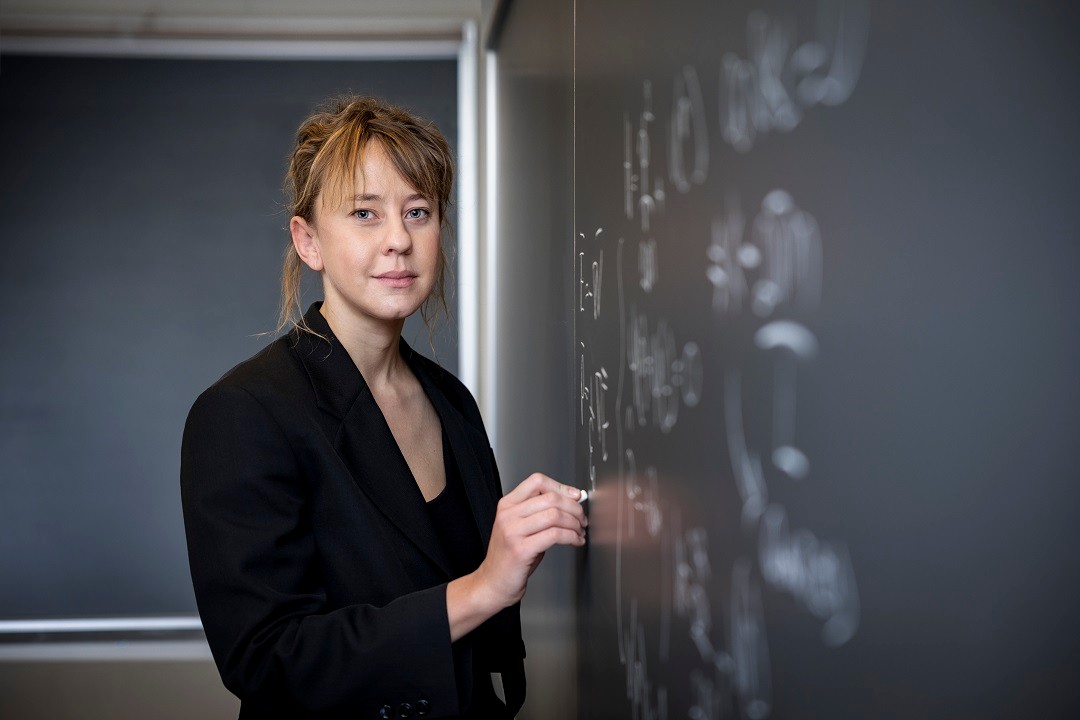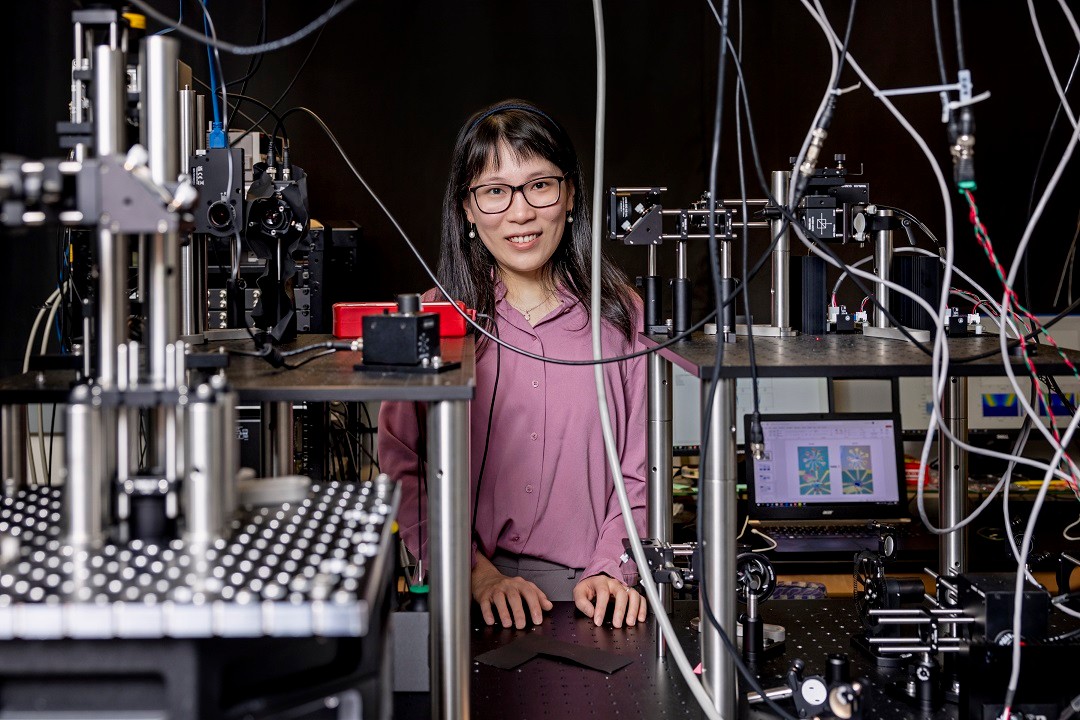Assistant Professors of Physics Qiong Ma and Benedetta Flebus each have received a National Science Foundation CAREER Award, which supports junior faculty in the sciences through the Faculty Early Career Development Program.
For Flebus, the five-year, $518,012 grant will support her lab’s efforts to advance the fundamental understanding of topological phases in magnetic materials.
“I am thrilled to have received this award—it is wonderful to know that your community values your work and research plans,” said Flebus. “This grant will also allow me to support students for the coming years and give me more time to focus on teaching as well.”

Benedetta Flebus (Caitlin Cunningham)
The application of topology to solid-state systems has led to the discovery of a number of physical phenomena, including topologically-protected states that can be used to efficiently transmit information at the nanoscale no matter how disordered the system might be, Flebus said.
Significant questions remain about how these ideas can be extended to physical systems that display loss or gain of energy, Flebus said.
“Topological magnetic materials have been proposed as building blocks for numerous technological applications; however, harnessing their potential requires a better understanding of the interplay between their topology and their ubiquitous dissipative interactions with the surrounding crystalline environment,” said Flebus.
For Ma, the five-year $631,652 grant will support her research group’s study of the interaction between electromagnetic waves and a new class of materials that are made of only one layer of atoms.
“I am very excited to receive this award,” Ma said. “This is very timely as my lab at Boston College is fully up and running with a group of energetic young researchers, including two postdocs, five graduate students, and a couple of undergraduates. This award inspires the entire team to do the best research.”

Qiong Ma (Caitlin Cunningham)
The grant will also support the development of a new course inspired by the research. Ma said the course will introduce cutting-edge quantum material science to students through unique hands-on experiences, and will be suitable for undergraduates in multiple scientific disciplines including physics, chemistry and biology.
Ma’s research, which has also been awarded funding from the Air Force Office of Scientific Research and by an Energy Frontier Research Center supported by the Department of Energy, is focused on better understanding how electromagnetic waves interact with materials.
“For instance, finding materials that can interact with light and convert it into an electrical current is at the heart of developing solar cells for clean energy applications,” Ma said. “Light-electricity conversion is also critical for sensor technology, such as night vision goggles, which converts the infrared radiation from warm objects into electrical signals. Wireless charging or communication also relies on the device’s ability to receive radio waves, which is also an electromagnetic wave, and convert it into electrical signals.”
Ma said the goal is for the project to enable highly efficient and highly controllable electronic and optical devices that harness quantum properties of materials for information and energy technologies.
Professor of Physics and Department Chair Michael Graf praised the recognition Ma and Flebus have received at the outset of their academic careers.
“These prestigious awards are a well-earned recognition of their research programs, which push the boundaries of our knowledge of novel electronic systems and have important practical implications,” Graf said. “I’m particularly impressed that professors Flebus and Ma have also made important contributions to our community through their teaching, mentoring, and service activities so early in their careers. It is a special honor for a department to have two faculty members receive these awards in the same year, and their success exemplifies our department’s commitment to its mission of scholarship and education.”
Ed Hayward, University Communications | January 2022



